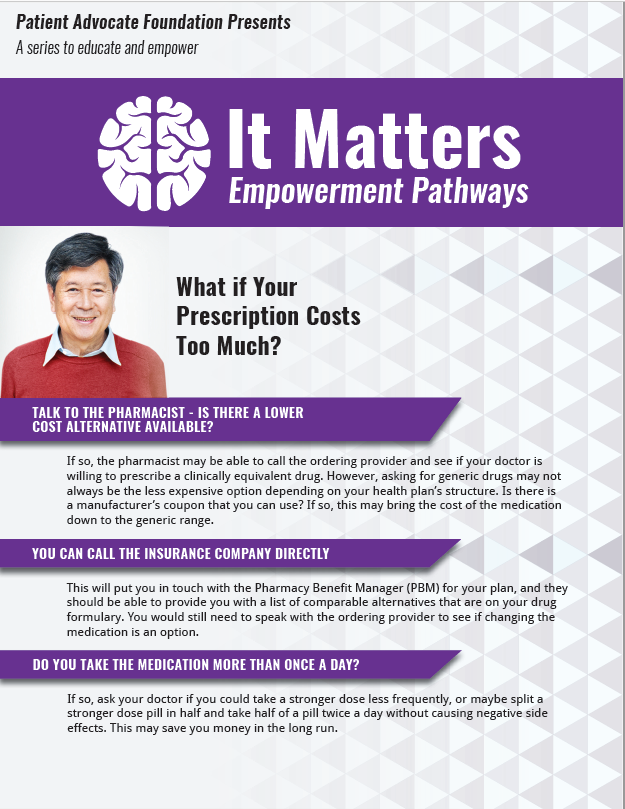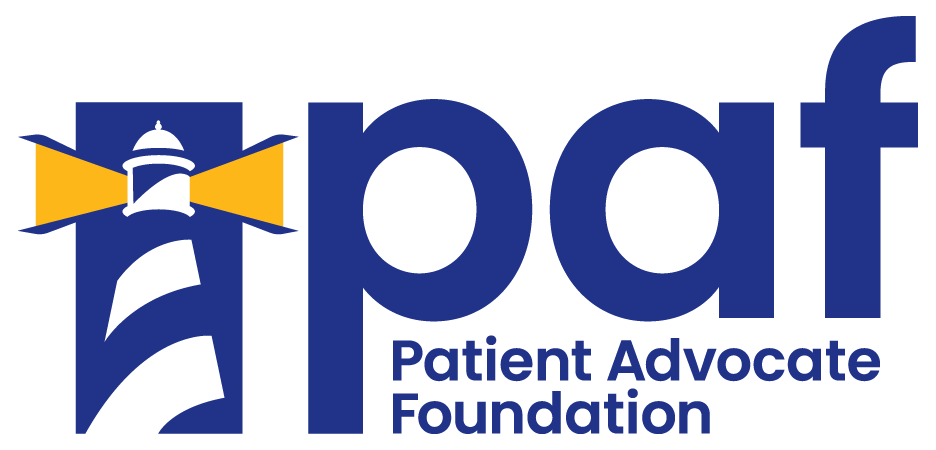Downloads

What if Your Prescription Costs Too Much?
Tip sheet offers actionable steps to take if you find that your prescription is too expensive.
 Menu
≡
╳
Menu
≡
╳
Patient Advocate Foundation (PAF) is a national 501 (c)(3) non-profit organization which provides case management services and financial aid to Americans with chronic, life threatening and debilitating illnesses.
In 2023, PAF served a population
of patients with over 958 distinct diagnoses.
Donate today and help Patient Advocate Foundation continue to help patients get access to the prescribed healthcare that they need.

Tip sheet offers actionable steps to take if you find that your prescription is too expensive.